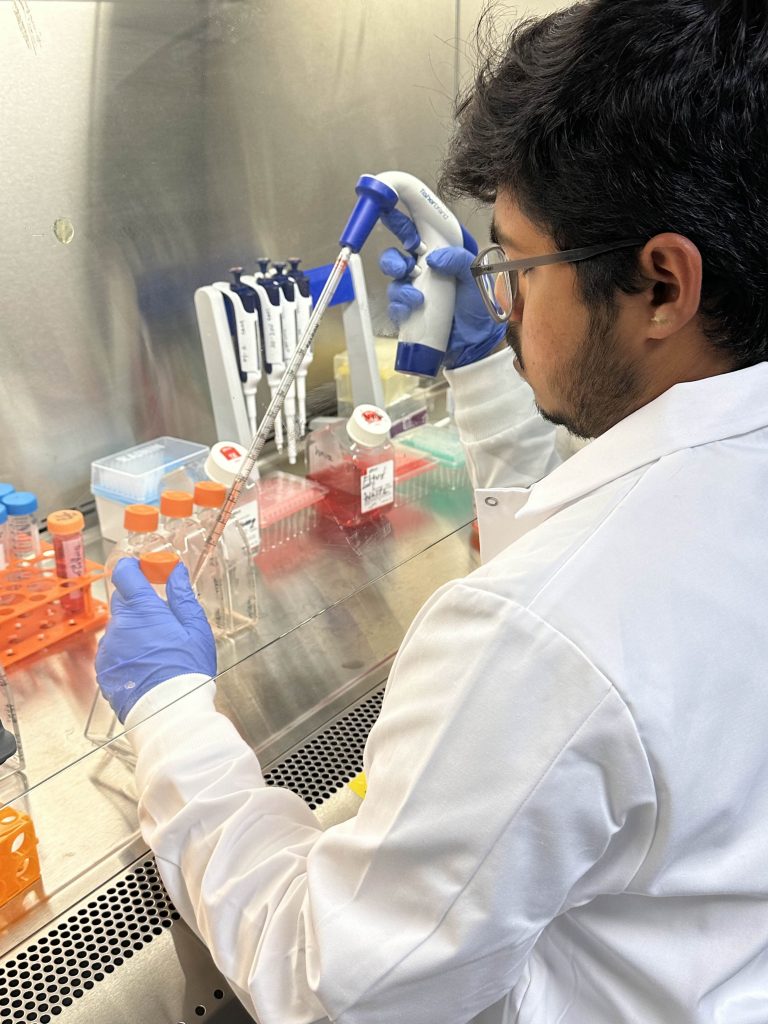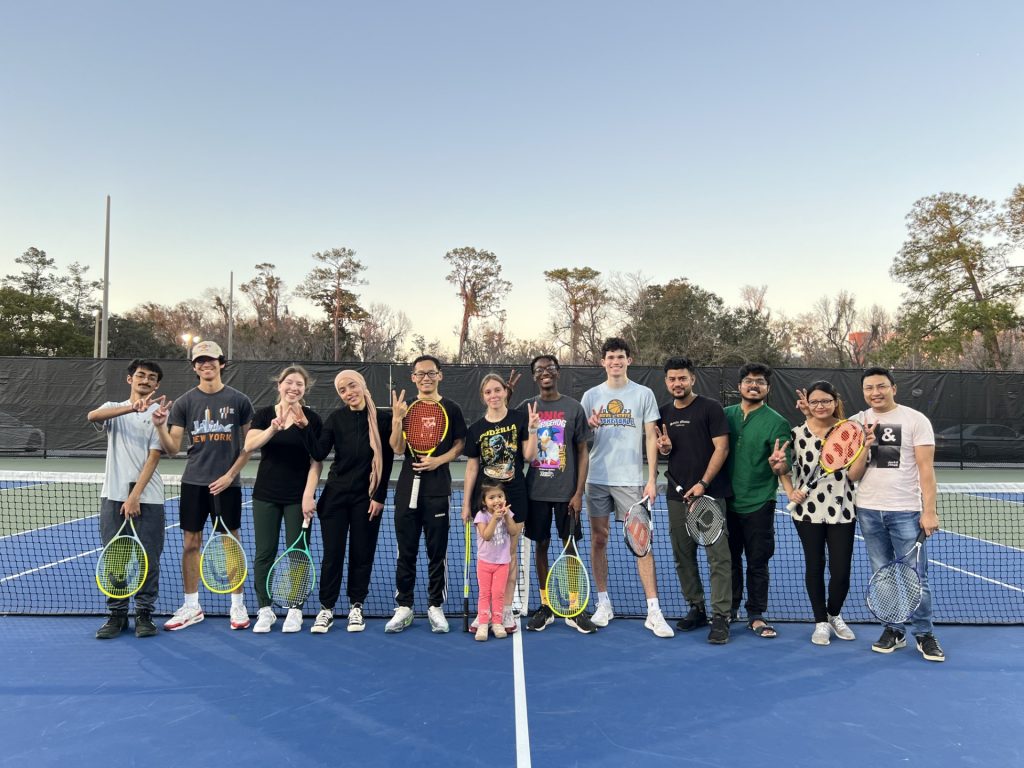INNOVATION
Join us in pushing boundaries.
For Post-Docs
Interested in working with us? Our lab welcomes motivated postdoctoral researchers eager to contribute to cutting-edge discoveries in sequencing, bioinformatics and molecular biology. Interested candidates should email tangfeng@ufl.edu with their resume or CV, along with a document outlining their research interests, previous experience, and future goals. Please also highlight any relevant publications, technical skills, and how your expertise aligns with our lab’s current projects.
For Graduate Students
Our lab is actively looking for passionate and driven graduate students interested in mass spectrometry, gene editing and next-generation sequencing. Prospective students should apply to the UF Chemistry Department Graduate Program and indicate our lab as their preferred area of interest in their research statement.



For Undergraduate Students
Interested in joining our lab? Email arnavkumbham@ufl.edu with your CV/resume and a brief letter of intent explaining why you’re excited to be part of our research team.
Feeling unsure about reaching out? Don’t worry—we don’t expect prior research experience. What matters most to us is curiosity, enthusiasm, and a willingness to learn. If you’re motivated to contribute to meaningful scientific discoveries, we’d love to hear from you!
Interested in joining our lab? We welcome motivated students and researchers eager to explore the role of DNA damage in human health. Click below to learn more about us and what we do!
try
grow
discover
innovate
transform
breakthrough
Frequently asked Undergraduate Q&A’s
Learn more about who we are and what we do.
Expectations
Our lab is a collaborative and supportive environment where learning is part of the process. You’ll be working alongside graduate students who are leading their own projects, with Dr. Tang providing guidance and mentorship.
As an undergraduate, you’ll have the opportunity to observe, ask questions, and gradually take on hands-on tasks as you gain confidence. We encourage curiosity, and no prior experience is required—just a willingness to learn and contribute. If you’re excited about exploring research, you’ll find plenty of opportunities to grow with us!
Research Focus
Our lab leverages mass spectrometry, gene editing, and next-generation sequencing to investigate how DNA damage—caused by environmental exposures and endogenous metabolism—contributes to cancer and other aging-related diseases. Graduate students lead individual research projects exploring these mechanisms, with Dr. Tang providing mentorship and guidance.
Time Commitment
Time commitment varies depending on your role in the lab, but an average undergraduate can expect to spend 10-12 hours per week in the lab doing various tasks from assisting graduate students to preforming independent experiments.
Publishing Opportunities
Yes! Undergraduate researchers may have the chance to contribute to scientific publications, present at conferences, and participate in UF’s research symposiums. These opportunities depend on the student’s involvement and the nature of their research.
Undergraduate Projects
Undergraduates may assist with ongoing research projects, perform literature reviews, analyze data, or help with basic experimental procedures. As students gain experience, they may have opportunities to conduct independent research under the guidance of a mentor.
Contact Info
For additional questions, reach out to arnavkumbham@ufl.edu or speak with a senior lab member.
